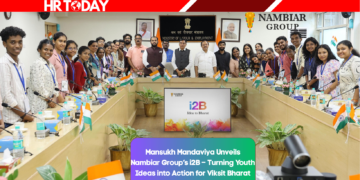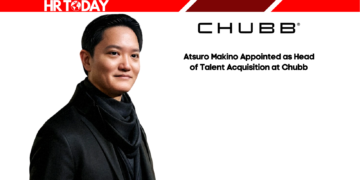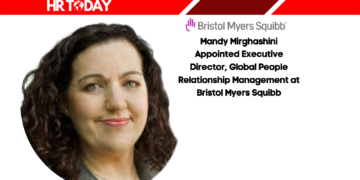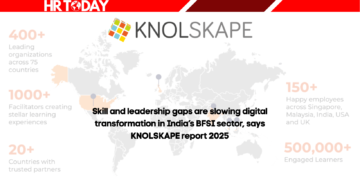As we move toward 2030, the role of HR is undergoing a powerful transformation—from an operational support function to a purpose-driven powerhouse shaping organizational culture, business ethics, and human experience. In this compelling piece, Dr. Hardip Baria maps out the five defining shifts that will revolutionize HR, from AI-augmented decision-making to the rise of the “Zeng” workforce.
1. What trajectory do you see the HR profession taking in the next 3–5 years?
The Human Resources (HR) function is at an inflection point. As we move into 2025 and beyond toward 2030, the profession is set to evolve dramatically—reshaped by artificial intelligence, human-centric values, and a deeper commitment to inclusion. The HR of the future won’t just manage the workforce; it will architect culture, curate experiences, and drive business innovation.
1. AI + HR = Augmented Human Capital Strategy
By 2030, AI will not replace HR—it will enhance and augment it. Predictive analytics, intelligent automation, and sentiment analysis will become part of everyday HR operations:
- Hiring will move from gut-feeling to AI-powered psychometric and behavioral assessments.
- Performance reviews will be data-backed and continuous, using real-time feedback and productivity patterns.
- L&D will become hyper-personalized, delivered by AI tutors aligned to business goals and individual aspirations.
HR professionals will need to reskill themselves in data interpretation, human-AI collaboration, and ethical governance to stay relevant.
2. The Rise of the Zeng Workforce (Zen + Gen Z)
As Gen Z dominates the workforce and Zen-inspired philosophies gain traction, HR will need to respond to a generation that values:
- Purpose over position
- Mindfulness over multitasking
- Wellbeing over wealth
This new Zeng workforce will expect organizations to be emotionally intelligent, ethically strong, and socially responsible. HR will play a critical role in embedding mental wellness programs, flexible work models, and value-based cultures.
3. Inclusion 3.0: Beyond Demographics
The next phase of inclusion won’t just be about gender, age, or ethnicity. It will focus on:
- Neurodiversity: Welcoming cognitive diversity into hiring and team-building.
- Socioeconomic inclusion: Tapping into talent from Tier 2/3 cities and remote geographies through hybrid models.
- Cultural fluidity: Adapting HR policies to embrace global mindsets across borders and time zones.
HR will move from “Diversity, Equity, and Inclusion” to “Belonging, Justice, and Humanization”.
4. The HRBP 2.0 – From Partner to Culture Architect
The HR Business Partner will evolve into a Strategic Culture Architect. Their KPIs won’t just be attrition or engagement, but:
- Purpose alignment
- Internal brand advocacy
- Leadership agility
They’ll facilitate systems thinking, act as translators between AI and human needs, and drive meaningful human experiences at work.
5. Sustainability, Ethics, and the Purpose Economy
As ESG (Environmental, Social, Governance) goals become central to business strategy, HR will take charge of:
- Driving green workplace practices
- Upskilling the workforce for a low-carbon economy
- Measuring social impact as a key success metric
The CHRO will sit at the same strategic table as the CFO and CTO, ensuring the business grows consciously and ethically.
In Conclusion:
By 2030, HR will no longer be a support function. It will be the conscious core of organizations—balancing intelligence (AI), inclusiveness (diverse and equitable workplaces), and introspection (Zeng values). The journey ahead demands not just new skills, but a new mindset—one that is bold, humane, data-literate, and deeply connected to purpose.
Read Also : HR at the Heart of Transformation: Shaping Purpose-Driven, Future-Ready Workforces in the Energy Sector
From Support to Strategy: HR’s Decisive Shift Toward Leading the Future of Work
Trust, Technology, and the Human Touch: Shaping the Future of HR












